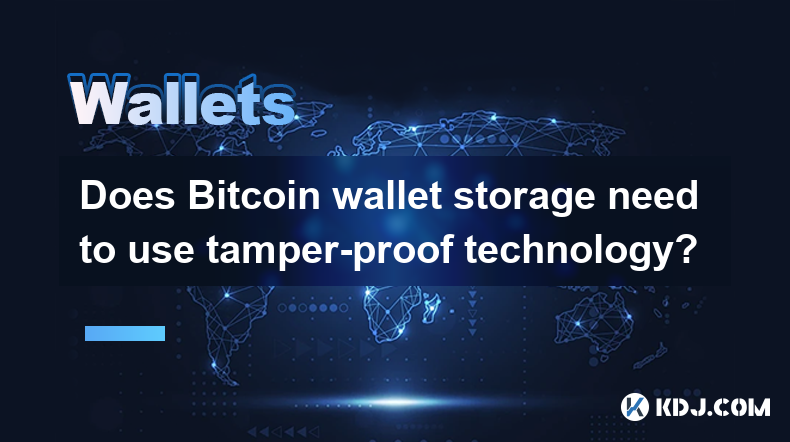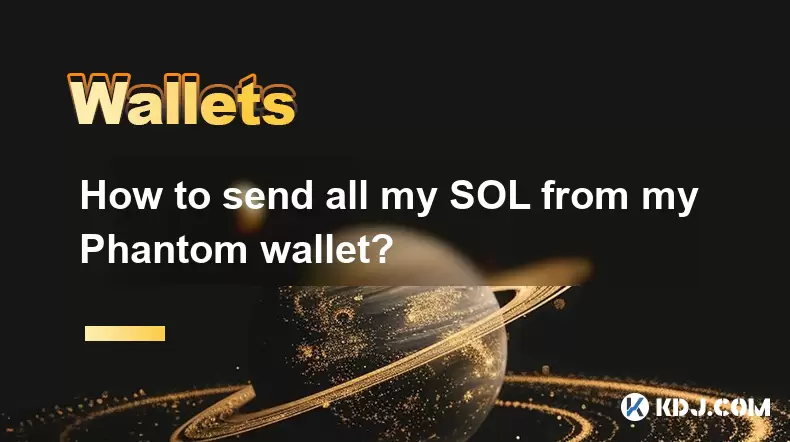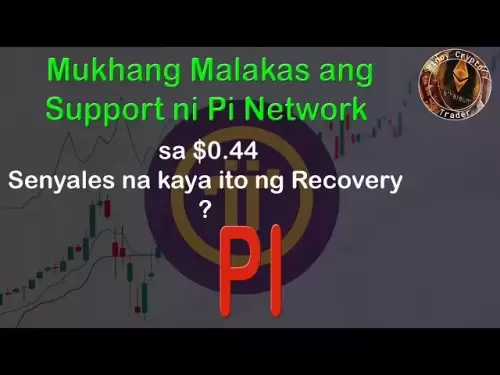-
 Bitcoin
Bitcoin $108,708.8110
0.60% -
 Ethereum
Ethereum $2,561.6057
1.91% -
 Tether USDt
Tether USDt $1.0001
-0.03% -
 XRP
XRP $2.2795
0.57% -
 BNB
BNB $662.2393
1.00% -
 Solana
Solana $153.1346
3.74% -
 USDC
USDC $1.0000
0.00% -
 TRON
TRON $0.2877
0.97% -
 Dogecoin
Dogecoin $0.1710
3.93% -
 Cardano
Cardano $0.5871
1.61% -
 Hyperliquid
Hyperliquid $39.6663
1.68% -
 Sui
Sui $2.9032
0.79% -
 Bitcoin Cash
Bitcoin Cash $496.1879
1.71% -
 Chainlink
Chainlink $13.5807
3.01% -
 UNUS SED LEO
UNUS SED LEO $9.0777
0.61% -
 Stellar
Stellar $0.2514
4.51% -
 Avalanche
Avalanche $18.1761
1.86% -
 Shiba Inu
Shiba Inu $0.0...01173
1.72% -
 Toncoin
Toncoin $2.8010
-4.23% -
 Hedera
Hedera $0.1594
3.21% -
 Litecoin
Litecoin $87.0257
-0.53% -
 Monero
Monero $319.1217
1.79% -
 Polkadot
Polkadot $3.3853
0.68% -
 Dai
Dai $0.9999
-0.01% -
 Ethena USDe
Ethena USDe $1.0003
0.02% -
 Bitget Token
Bitget Token $4.3420
-0.97% -
 Uniswap
Uniswap $7.3772
1.39% -
 Aave
Aave $286.6277
5.61% -
 Pepe
Pepe $0.0...09994
2.33% -
 Pi
Pi $0.4589
1.76%
Does Bitcoin wallet storage need to use tamper-proof technology?
Bitcoin wallet tamper-proof technology isn't mandatory, but significantly enhances security, especially for large holdings. Hardware wallets benefit most, while software wallets rely on software-based security measures. A layered approach is best.
Mar 23, 2025 at 10:56 am

Does Bitcoin Wallet Storage Need to Use Tamper-Proof Technology?
The question of whether Bitcoin wallet storage needs tamper-proof technology is multifaceted, depending heavily on the type of wallet and the level of security desired. While not strictly required for all users, incorporating tamper-proof elements significantly enhances security, particularly for those holding substantial amounts of Bitcoin. The inherent vulnerability of digital assets makes robust security measures crucial.
For hardware wallets, the answer leans heavily towards "yes." Hardware wallets, by their nature, aim to isolate private keys from external threats like malware and phishing attacks. This isolation is often achieved through tamper-evident seals and secure elements, which are designed to detect and alert users to any physical tampering attempts. If a hardware wallet shows signs of tampering, it should be immediately considered compromised.
Software wallets, however, present a different scenario. Software wallets store private keys on a device like a computer or smartphone. While some software wallets incorporate advanced security features, they are generally more vulnerable to malware, hacking, and other digital attacks. Tamper-proof technology in the traditional sense isn't directly applicable here. Instead, security relies on strong passwords, two-factor authentication, and keeping the software updated.
The effectiveness of tamper-proof technology depends on its implementation. A simple sticker isn't truly tamper-proof. Advanced methods include physical shielding, specialized secure elements that detect unauthorized access attempts, and potentially even self-destruct mechanisms in extreme cases. The cost and complexity of such measures vary considerably.
Choosing the right level of security depends on the user's risk tolerance and the value of their Bitcoin holdings. Someone holding a small amount of Bitcoin might find basic software wallet security sufficient. Conversely, those holding significant assets should prioritize hardware wallets with robust tamper-proof features.
The concept of "tamper-proof" is also relative. While technology can make tampering significantly more difficult and detectable, determined attackers with sufficient resources might still find ways to compromise even the most secure systems. Therefore, a layered security approach, combining hardware and software security practices, is often recommended. This might include using a hardware wallet with strong passphrases, regularly updating software, and employing multi-signature wallets for enhanced security.
Understanding the different types of Bitcoin wallets is crucial to grasping the need for tamper-proof technology. Cold storage wallets, like hardware wallets, are designed to be offline, minimizing the risk of digital attacks. These benefit most from tamper-proof features. Hot wallets, however, are online and constantly connected, making them more susceptible to various threats. While tamper-proof elements aren't directly built into hot wallets, strong security practices are paramount.
Furthermore, the geographical location and legal environment of the user also influences the need for tamper-proof technology. In regions with high rates of cybercrime or physical theft, the added layer of protection offered by tamper-proof hardware wallets becomes even more critical.
The cost-benefit analysis of incorporating tamper-proof technology is a crucial consideration. Hardware wallets with advanced tamper-proof measures are typically more expensive than basic software wallets. Users need to weigh the cost against the potential loss from a compromised wallet. The value of the Bitcoin held directly impacts this decision.
Beyond the physical tamper-proofing of the device itself, the security of the seed phrase (or recovery phrase) is paramount. This phrase is crucial for recovering access to the Bitcoin, and its security is independent of any tamper-proof measures on the wallet device itself. Secure storage of the seed phrase, separate from the wallet, is a critical element of overall security.
Consideration should also be given to the ongoing maintenance and updates of the tamper-proof systems. Regular software updates for hardware wallets are crucial to patching security vulnerabilities. Neglecting these updates can significantly reduce the effectiveness of the tamper-proof measures. The user must remain vigilant.
Ultimately, the decision of whether or not to use tamper-proof technology for Bitcoin wallet storage is a personal one based on individual circumstances and risk assessment. While not mandatory for all users, the added security it provides, particularly for significant holdings, often makes it a worthwhile investment.
Frequently Asked Questions:
Q: Are all hardware wallets tamper-proof?
A: No, the level of tamper-proofing varies significantly between hardware wallets. Some offer basic tamper-evident seals, while others incorporate more sophisticated security features, such as secure elements designed to detect physical intrusion.
Q: Can software wallets offer any form of tamper-proof protection?
A: Software wallets don't offer tamper-proof protection in the same way as hardware wallets. Security relies on software-based measures like strong passwords, encryption, and two-factor authentication. These measures aim to protect against software-based attacks but not necessarily physical tampering.
Q: What happens if my tamper-proof hardware wallet shows signs of tampering?
A: If your hardware wallet shows any signs of tampering, it should be immediately considered compromised. Do not use it to access your funds. Contact the manufacturer for support and follow their instructions for recovery. You may need to generate a new wallet.
Q: Is tamper-proof technology foolproof?
A: No, no security system is completely foolproof. While tamper-proof technology makes it significantly more difficult to compromise a hardware wallet, determined attackers with sufficient resources might still find ways to overcome these measures. A layered security approach is always recommended.
Q: How much does tamper-proof technology add to the cost of a Bitcoin wallet?
A: The cost varies depending on the level of security offered. Hardware wallets with advanced tamper-proof features are generally more expensive than basic models or software wallets. The price difference reflects the increased security and complexity.
Disclaimer:info@kdj.com
The information provided is not trading advice. kdj.com does not assume any responsibility for any investments made based on the information provided in this article. Cryptocurrencies are highly volatile and it is highly recommended that you invest with caution after thorough research!
If you believe that the content used on this website infringes your copyright, please contact us immediately (info@kdj.com) and we will delete it promptly.
- Bitcoin Wallet Hack? Coinbase Exec Sounds the Alarm on $8B Whale Movement
- 2025-07-07 18:30:12
- Mercado Bitcoin, Tokenization, and XRP Ledger: A Latin American Power Play
- 2025-07-07 18:30:12
- XYZVerse, Wall Street, and the Crypto Upswing: What's the Deal?
- 2025-07-07 19:10:12
- AI, Web3, and Communities: Building the Future Together
- 2025-07-07 19:10:12
- AurealOne: A Promising Early-Stage Metaverse Project
- 2025-07-07 19:15:12
- Dogecoin Price: Crypto Market Analysis and the Musk Effect
- 2025-07-07 19:50:12
Related knowledge

How to cancel a pending transaction in Phantom wallet?
Jul 03,2025 at 07:21pm
Understanding Pending Transactions in Phantom WalletA pending transaction in the Phantom wallet occurs when a user initiates a transfer or interaction with the Solana blockchain, but it hasn't yet been confirmed by the network. This can happen due to various reasons such as low transaction fees, network congestion, or incorrect gas settings. It's import...

How to see the estimated value of my tokens in Phantom wallet?
Jul 04,2025 at 12:21am
What is Phantom Wallet?Phantom wallet is one of the most popular cryptocurrency wallets designed for the Solana blockchain. It allows users to store, send, receive, and manage various tokens built on Solana, including SPL tokens and NFTs. The wallet offers a user-friendly interface, making it accessible for both beginners and advanced users in the crypt...

How to lock my Phantom wallet extension?
Jul 03,2025 at 11:14am
What Is the Phantom Wallet and Why Lock It?The Phantom wallet is a popular non-custodial cryptocurrency wallet designed for interacting with the Solana blockchain. Supporting both browser extensions and mobile apps, Phantom allows users to store, send, receive, and stake SOL tokens, as well as interact with decentralized applications (dApps). Securing y...

Does Phantom wallet offer two-factor authentication (2FA)?
Jul 03,2025 at 09:00am
Understanding Phantom Wallet and Its Security FeaturesPhantom wallet is a widely used non-custodial cryptocurrency wallet that supports the Solana blockchain. It allows users to store, send, receive, and interact with decentralized applications (dApps) seamlessly. As security is a top priority for any crypto wallet user, security features like two-facto...

How to send all my SOL from my Phantom wallet?
Jul 06,2025 at 10:00am
Preparing to Send SOL from Your Phantom WalletBefore initiating any transaction, it is crucial to ensure that your Phantom wallet is fully set up and connected to the correct network. Phantom supports multiple networks, but for sending SOL, you must be on the Solana blockchain. Confirm this by checking the network indicator in the top-right corner of th...

What is "rent" on Solana and how does it affect my Phantom wallet?
Jul 02,2025 at 08:35pm
Understanding 'Rent' on SolanaIn the context of Solana, the term 'rent' refers to a storage fee that users pay for maintaining data on the blockchain. Unlike Ethereum, where storage costs are paid once via gas fees during contract deployment, Solana implements a recurring cost model to ensure efficient usage of network resources. This means that any acc...

How to cancel a pending transaction in Phantom wallet?
Jul 03,2025 at 07:21pm
Understanding Pending Transactions in Phantom WalletA pending transaction in the Phantom wallet occurs when a user initiates a transfer or interaction with the Solana blockchain, but it hasn't yet been confirmed by the network. This can happen due to various reasons such as low transaction fees, network congestion, or incorrect gas settings. It's import...

How to see the estimated value of my tokens in Phantom wallet?
Jul 04,2025 at 12:21am
What is Phantom Wallet?Phantom wallet is one of the most popular cryptocurrency wallets designed for the Solana blockchain. It allows users to store, send, receive, and manage various tokens built on Solana, including SPL tokens and NFTs. The wallet offers a user-friendly interface, making it accessible for both beginners and advanced users in the crypt...

How to lock my Phantom wallet extension?
Jul 03,2025 at 11:14am
What Is the Phantom Wallet and Why Lock It?The Phantom wallet is a popular non-custodial cryptocurrency wallet designed for interacting with the Solana blockchain. Supporting both browser extensions and mobile apps, Phantom allows users to store, send, receive, and stake SOL tokens, as well as interact with decentralized applications (dApps). Securing y...

Does Phantom wallet offer two-factor authentication (2FA)?
Jul 03,2025 at 09:00am
Understanding Phantom Wallet and Its Security FeaturesPhantom wallet is a widely used non-custodial cryptocurrency wallet that supports the Solana blockchain. It allows users to store, send, receive, and interact with decentralized applications (dApps) seamlessly. As security is a top priority for any crypto wallet user, security features like two-facto...

How to send all my SOL from my Phantom wallet?
Jul 06,2025 at 10:00am
Preparing to Send SOL from Your Phantom WalletBefore initiating any transaction, it is crucial to ensure that your Phantom wallet is fully set up and connected to the correct network. Phantom supports multiple networks, but for sending SOL, you must be on the Solana blockchain. Confirm this by checking the network indicator in the top-right corner of th...

What is "rent" on Solana and how does it affect my Phantom wallet?
Jul 02,2025 at 08:35pm
Understanding 'Rent' on SolanaIn the context of Solana, the term 'rent' refers to a storage fee that users pay for maintaining data on the blockchain. Unlike Ethereum, where storage costs are paid once via gas fees during contract deployment, Solana implements a recurring cost model to ensure efficient usage of network resources. This means that any acc...
See all articles

























































































